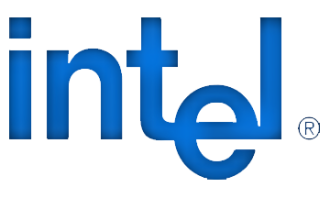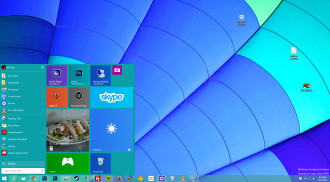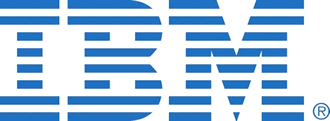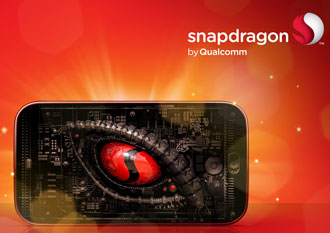Author: Eva Glass
Eva Glass first rose to prominence in The INQUIRER. She continues to work behind the scenes to dig out the best stories.
IDC said that even though it’s a relatively new tech, its adoption is “soaring@.
Total capacity of flash based arrays reached 3.53 exabytes last year, and the market itself grew year on year by 32 percent.
Flash array systems is growing in data centres but there’s still a high dollar per gigabyte price to pay, compared to conventional hard drives.
Western Europe accounted for 75 percent of revenues in 2014 with UK, Germany and France leading the pack.
IDC predicts that the flash storage market will grow at 15 percent CAGR right through until 2018. Conventional hard drives will still have a place in the enterprise, but largely as back up media.
India bans sex determination tests
 The Supreme Court of India today ordered Microsoft, Google, and Yahoo not to carry adverts for products that will predict the gender of a child.
The Supreme Court of India today ordered Microsoft, Google, and Yahoo not to carry adverts for products that will predict the gender of a child.The court made the ruling because female infanticide and abortion of female children is relatively common in India.
The Supreme Court said that such factors were causing an imbalance of genders in India..
A few days ago, Indian Prime Minister Narendra Modi said that the country’s sex ratio was deteriorating.
The practice of determining a future child’s sex is illegal in India. Modi is currently promoting a campaign in India stressing gender equality. The decision is an interim decision, according to India Today, and will be reviewed again in early February.
IBM announces personal cloud security
 Big Blue said it has announced a cloud technology that will help ordinary people protect themselves online.
Big Blue said it has announced a cloud technology that will help ordinary people protect themselves online.The tech, dubbed Identity Mixer, has a cryptographic algorithm which will protect age, nationality, address and credit card numbers.
Mixer acts as an agent between somebody buying a product and a vendor – it means that the vendor won’t hold the actual details, just the authentication.
IBM said it is offering Identity Mixer to developers as part of its platform as a service (PaaS) cloud.
It means developers will be able to use Identity Mixer in their own apps and in conjunction with their services.
IBM is already testing the technology in two major projects across Europe.
Intel carries on wasting money
 Chip giant Intel is being stubborn about its mobile strategy and will continue to throw money at the problem.
Chip giant Intel is being stubborn about its mobile strategy and will continue to throw money at the problem.The firm has attempted to make headway in the tablet and smartphone market but has wasted around $7 billion so far without very much result.
Now, according to Taiwanese wire Digitimes, there’s evidence that Intel is going to carry on wasting money in a segment that has brought it nothing but woe so far.
Digitimes said that it is in cahoots with Chinese firms Spreadtrum and Rockchip and wants to continue to compete with Qualcomm and Mediatek in these markets.
The report claimed that it has licensed its X86 tech to both companies in a bid to ramp up its mobile business.
The report said Spreadtrum will release a number of system on a chip devices in the second half of this year.
Intel apparently wants to be a leader in the much hyped “internet of things”.
AMD rumoured to be up for sale
 Financial analysts on Wall Street yesterday gave credence to rumours that Advanced Micro Devices (AMD) is up for sale.
Financial analysts on Wall Street yesterday gave credence to rumours that Advanced Micro Devices (AMD) is up for sale.The putative buyer is rumoured to be a Chinese company but there are caveats around such a deal.
For example, AMD’s licence agreement with chip behemoth Intel would fall into desuetude if such a sale was to go ahead.
But the company may be worth something even without that element, given that AMD’s X86 business isn’t that important any more. Its graphics business continues to do well.
AMD’s share price closed yesterday at $2.70.
On the 20th of January, AMD released its fourth quarter results, showing revenues of $1.24 billion – down 22 percent compared to the same quarter the year before.
Newly sprung CEO Dr Lisa Su said then AMD had made some progress diversifying its business but admitted its PC business faced challenges.
It is facing “channel headwinds” in its computing and graphics segment, she said then.
Windows 10: the mess begins
 Microsoft appears to have further muddied the waters with its announcements about Windows 10 last week.
Microsoft appears to have further muddied the waters with its announcements about Windows 10 last week.The new version of Windows, which no one really expects to be available until September this year at the earliest, is supposed to run on all sorts of different hardware platforms.
But, according to veteran expert Mary Jo Foley over at ZD Net, you might need a degree in both physics and marketing to try and make any sense of what’s in store for millions of people later this year.
She writes that the different SKUs – stock keeping units come in a plethora of shapes and sizes.
For example, the preview edition available to test now is Windows 10 desktop that will run on Intel based devices.
But the February version will be Windows 10 mobile and that’s intended to run on phones based on ARM chips.
There are other versions of Windows 10 intended for different kinds of devices.
You can read more about what Mary Jo has to say, here.
Our take on this is that all Microsoft will do is persuade its enterprise customers and everyone else that it is deeply confused about the future.
Some sources estimate that as many as 10 percent of people that use Windows are still using Windows XP. That’s because they failed to be convinced it was worth moving to Vista, Windows 7, or the widely disrespected Windows 8.1.
Smart card shipments soar
That’s an increase of over nine percent compared to 2013and of those shipments, 83 percent went into the SIM or payments cards market, according to a survey from ABI Research.
Regulatory matters caused shipments to fall in 2013 – only 5.1 billion shipped then.
Commoditisation is causing prices to fall and vendors of the card are attempting to make more money out of software and services rather than the cards themselves.
What’s happening, according to senior analyst Phil Sealy, is that more non-card based embedded applications emerge and there are opportunities in new markets including anti-counterfeiting measures and brand protection.
He said that the smart card market will continue to grow, with vendors attempting to include, as an example, pre-paid apps on national ID cards -giving digital banking facilities to people who don’t have bank accounts.
Major Apple supplier to slash jobs
That’s according to Reuters, which has spoken to a company representative who confirmed the cuts will come.
The representative who works to the chairman of the board, said labour costs had doubled since 2010.
Foxconn currently hires 1.3 million people and came under fire in 2010 after a number of its workers killed themselves.
The Reuters report said revenue growth for Foxconn fell to 1.3 percent in 2013.
Analysts are predicting that the massive growth in sales of smartphones and tablets is bound to decline as saturation levels increase.
Both Apple and Samsung now face intense competition from own brand Chinese smartphone vendors offering units at rock bottom prices and with rock bottom margins.
Scientists invent “bulletproof” batteries
 Lithium ion batteries are notorious for overheating because of short circuits – whether they’re in notebooks, in phones or in Boeing 787 Dreamliners.
Lithium ion batteries are notorious for overheating because of short circuits – whether they’re in notebooks, in phones or in Boeing 787 Dreamliners.But now scientists at the University of Michigan say they’ve come up with some tech that will help prevent disaster disrupting your dreams.
The team has made nano fibres from Kevlar which stops metal tendrils shorting out batteries. Kevlar is used in bulletproof vests.
And the material isn’t a long way away. The scientists estimate that mass production will start in the fourth quarter of next year.
Nicholas Kotov, a professor of engineering at the University, said: “Unlike other ultra strong materials such as carbon nanotubes, Kevlar is an insulator. This property is perfect for separators that need to prevent shorting between two electrodes.”
Connect your kitchen to the internet of things
 An estimate by Gartner analysts predicts that connected kitchens are going to save us 15 percent by 2020.
An estimate by Gartner analysts predicts that connected kitchens are going to save us 15 percent by 2020.Gartner says the potential of kitchens being connected to the internet of things means there are big business opportunities for companies.
An example would be when your smart fridge detects you’re a bit low on milk or bacon so auto connects to your favourite grocer to make a delivery.
But Gartner warns there’s still a lack of standards related to the internet of things. IT companies will have to mix up different elements from a variety of different providers.
If your kitchen is connected, your car is going to be even more connected.
In the same report it said that by 2020 there will be quarter of a billion connected vehicles.
James Hines, a research director at Gartner, said: “The connected car is already a reality and in vehicle wireless connectivity is rapidly expanding from luxury models and premium brands to high volume mid market models.”
IBM to slash and burn staff – report
 Following lukewarm quarterly financial results last week, reports claim IBM is set to cut over a quarter of its workforce this week.
Following lukewarm quarterly financial results last week, reports claim IBM is set to cut over a quarter of its workforce this week.IBM has currently a workforce of 431,000 people, but Sky News claims that Forbes’ reporter Robert X Cringely is forecasting the job cuts.
According to Cringely, around 26 percent of IBM will get calls from their managers telling them their jobs are surplus to Big Blue’s requirements.
IBM has neither confirmed nor denied the rumours.
The report claims that the reorganisation is called Project Chrome, and the majority of people losing their jobs will be in the USA.
IBM has been re-engineering its business and last year sold its X86 server business to Chinese giant Lenovo.
It has also been focusing more and more on cloud computing, in an attempt to trim costs and position itself as a market leader.
Google forced to turn over Wikileaks materials
 A secret search warrant from a judge in a US federal court forced Google to turn over Wikileaks’ emails and data.
A secret search warrant from a judge in a US federal court forced Google to turn over Wikileaks’ emails and data.But that happened in 2012, and it wasn’t tell the end of last year that Google felt able to tell Wikileaks it had given the US Justice Department including emails and IP addresses of three staffers at Wikileaks.
Wikileaks responded today by saying it was “disturbed” by the revelation. Wikileaks said that social networking company Twitter had refused similar requests.
The judge stopped Google from telling Wikileaks about the court order but later rescinded this decision.
On its web site today, Wikileaks said its lawyers have written to Google and the Justice Department to protest the revelations.
You can find what Wikileaks has to say for itself, here.
Silver nanowires heal themselves
 Nanotechnology is one of the great hopes of the electronics industry as Intel’s Moore’s Law reaches its inevitable end.
Nanotechnology is one of the great hopes of the electronics industry as Intel’s Moore’s Law reaches its inevitable end.And one of the elements of this future are silver nanowires – regarded by some as a viable alternative for indium tin oxide.
The problem with indium tin oxide is that while it is one of the most used materials for plasma displays, touchscreens and flexible electronics, it is pricey.
So called silver nanowires, which can be one dimensionally embedded in flexible polymers is considered to be one of the answers because it’s transparent and conductive.
Scientists at Northwestern University in the USA said there’s been the lack of a real understanding of its mechanical properties.
But the scientists believe they now understand the behaviour of silver nanowire in electronics better.
A factor called cyclic loading can make conductive films fail but the research team believes that some of the material’s problems self heal, meaning that the wires can stand strong loads for long periods of time.
Essentially, the scientists have come up with a new method that allows them to understand when the materials are flexed millions of times.
Mediatek munches up Qualcomm’s lead
 A report from US firm Strategy Analytics said that while Qualcomm still had a 64 percent lead in the third quarter of 2014, its lead is being eaten into by Mediatek.
A report from US firm Strategy Analytics said that while Qualcomm still had a 64 percent lead in the third quarter of 2014, its lead is being eaten into by Mediatek.Mediatek has 17 percent share of the top five baseband revenues, followed by Spreatrum with six percent revenue share.
Qualcomm did have 85 percent share in the LTE baseband market but that fell to less than 80 percent in the period, mostly due to incursions from the Chinese company.
Mediatek overtook Marvell and Strategy Analytics believe it is set to continue its growth in LTE.
During the quarter, HiSilicon, Intel and Marvell made progress in the marketplace. Intel won some major design wins with Samsung.
Windows 10 may be a fail
 Taiwanese suppliers of notebooks are not over impressed by the news last week that Microsoft will give free upgrades to its Windows 10 operating system.
Taiwanese suppliers of notebooks are not over impressed by the news last week that Microsoft will give free upgrades to its Windows 10 operating system.Digitimes, which regularly talks to manufacturers in the supply chain, reports that Microsoft’s move is unlikely to prompt people to replace their existing notebooks.
Windows 10 is not expected to be available until the third quarter of this year – and the supply chain doesn’t think a free upgrade from Windows 8.1 or Windows 7 is much of an incentive for people to go out and buy new machines.
The report claims that many people continue to use Windows 7 and as much as 10 percent of people are still using the now unsupported Windows XP.
People prefer to buy new smartphones or tablets than expensive notebook PCs, Digitimes said.
Notebook sales will continue to be of low end models rather than the full monte with bells and whistles, Digitimes said.








